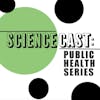Use the fields below to perform an advanced search of The Daily Cardinal's archives. This will return articles, images, and multimedia relevant to your query. You can also try a Basic search
823 items found for your search. If no results were found please broaden your search.
(02/15/18 2:00pm)
The home pregnancy test has become a cheap and effective option across the world, helping women to become more aware of their pregnancy status for decades. Diagnostic tools such as the pregnancy test are powerful but also few and far between.
(02/08/18 3:01pm)
At the UW-Madison School of Pharmacy, unique research outside of traditional medicine is taking place. For the Sonderegger Research Center, the medical field is rich in opportunities for social science, where the medicine we quickly think of is set aside and becomes only one component in the patient experience.
(02/08/18 3:00pm)
If you had to name something as ubiquitous as the air we breathe in, it would be plastic. From cheap soda bottles to the shopping baskets in the market, plastic is essential to our lives. However, it’s also devastating for being non-renewable in large quantities. One of the researchers trying to solve that problem is Ali Hussain Motagamwala, a graduate student working under James Dumesic, a professor of chemical and biological engineering, with funding provided by the Great Lakes Bioenergy Research Center.
(02/08/18 3:00pm)
Getting a virus is a major bummer. Your joints ache, you’re constantly sniffly, you might
(01/24/18 2:00pm)
Rett syndrome is a non-inherited, rare neurological disorder that mostly affects girls and has no cure. This syndrome influences almost every part of the child’s life and is caused by mutations of the MeCP2 gene located on the X chromosome. Children affected by this syndrome show a variety of symptoms, including a worsening of the child’s ability to communicate, eat and move.
(01/23/18 2:00pm)
Cardiovascular disease is one of the health conditions that many people suffer and die from around the world — it is common to have someone very close to you fall victim to it. As ubiquitous as cardiovascular disease is, so are the efforts to treat it.
(01/23/18 2:00pm)
During the summer and fall of 2013, Gretchen Schmelzer, a retired Door County school teacher, could often be found walking the beach at Baileys Harbor near her home in Sturgeon Bay, WI. She was part of Avian Monitoring for Botulism Lakeshore Events, or AMBLE, a network of hundreds of citizen scientists assembled by the USGS National Wildlife Health Center in 2010 to record data on bird die-offs caused by avian botulism in the Great Lakes.
(11/27/17 2:00pm)
Can your stomach explode from eating too much?
(11/27/17 2:00pm)
Collagen is the most abundant protein in the human body, making up a huge amount of our bone, muscle and tendon mass. Collagen plays a key role in tissue function and stability. It is also a key indicator of tissue health. For these reasons, identifying the presence of collagen and noting its intrinsic structure can prove valuable in the healthcare field.
(11/20/17 2:00pm)
Why is some hair curly and some hair straight?
(11/20/17 2:00pm)
Technology is advancing exponentially and the exciting field of genome editing is no exception. Scientists at the University of Wisconsin-Madison and the Morgridge Institute for Research are playing an essential role in ensuring the continued responsible development of this genome editing technology. They are exploring the intersection of genome editing technology and national security.
(11/06/17 2:00pm)
Do animals dream?
(11/06/17 2:00pm)
Welcome back to the third installment of Sciencecast, the Daily Cardinal’s science podcast series. Our theme is Public Health. Several times this semester, we will be exploring the various facets of public health through interviews with UW-Madison experts.
(10/26/17 5:50am)

(10/23/17 1:00pm)
Parenting styles vary among primate species. Some species’ offspring rely on the mother alone for caretaking and education. In other more social primates, caretaking can become a group responsibility where the father and older offspring contribute significant energy to infant care; this is known as cooperative breeding.
(10/23/17 1:00pm)
Plasma is an essential element in science fiction, most notably in the Star Wars franchise as a critical component of the Stormtroopers’ guns. At UW-Madison, Cary Forest, a professor of physics, is studying plasma that’s anything but fictional. Forest is recreating plasma solar flares right here on campus.
(10/23/17 1:00pm)
Oh where, oh where has the nitrogen gone? Oh where, oh where can it be?
(10/23/17 1:00pm)
Everyone has a specialty and everyone is an expert in something. When one becomes an expert in a certain field, it simultaneously becomes more necessary and more difficult to convey the knowledge gained to those who will benefit from it. Conveying healthcare information in particular has never been an easy task, whether one is talking to a doctor about a health-related problem or trying to interpret health information for a loved one who is unable to do so for themselves.
(10/18/17 1:56am)
UW-Madison announced Tuesday an initiative to fund two-year grants for data science research at the university.
(10/09/17 1:00pm)
Many people throughout the Madison area love to spend time outdoors. Whether it’s hiking through trails or spending time on the lakes, everyone loves the scenic views the city has to offer. Though the landscape is beautiful, there is more hiding underneath the surface than most people know.


